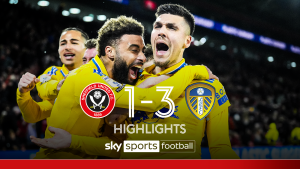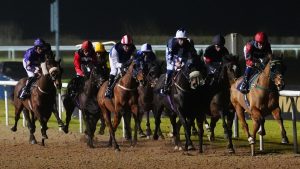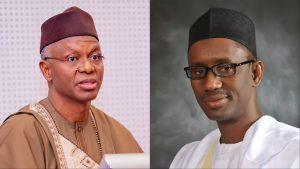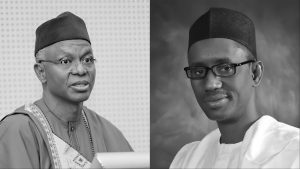Banishing Brighton on the Springboks’ to-do list for RWC

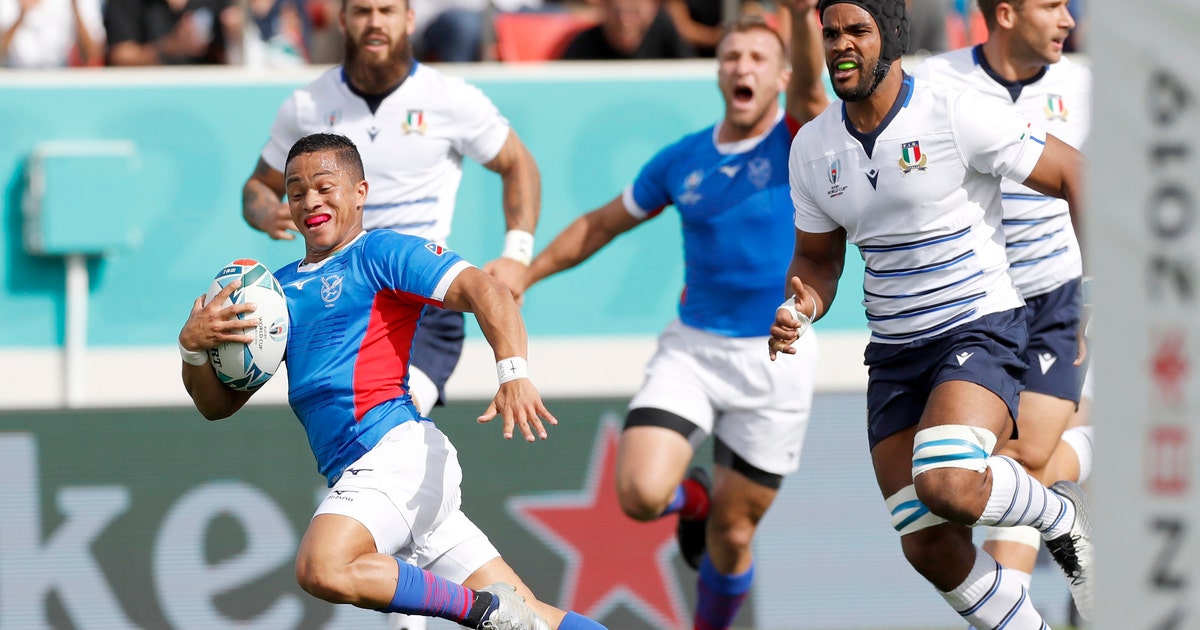
The top line on a Springboks to-do list for Rugby World Cup 2019 would be pretty obvious: Lift the Webb Ellis trophy again.
Under that there might be a note to beat the All Blacks in the pool stage. Big red cross next to that one.
And further down, maybe there’s an entry that reads, “Banish Brighton.” That’s where the Namibia game comes in.
No match has dismayed Springboks rugby more than the Miracle of Brighton, or misery of Brighton for South Africans, the bewildering defeat to Japan at the Rugby World Cup in England four years ago. It spurred one of those inspiring underdog movies, with the joyous Japanese team the stars. The other side of the story was it started a drastic two-year slump for the two-time World Cup-winning Springboks until current coach Rassie Erasmus started to put it right again.
Nothing in the form book suggests Namibia, the lowest ranked team at this World Cup, will blindside southern African neighbor South Africa in their Pool B match in Toyota on Saturday.
But that’s what they said before South Africa-Japan on Sept. 19, 2015, and before Karne Hesketh — born in New Zealand to compound it for South Africa — slid into the left corner in the dying seconds for the try that delivered the greatest upset at a Rugby World Cup.
It’s four years later and it’s South Africa’s first World Cup game against a Tier Two team since then.
It’ll also be a week since the Boks lost to New Zealand 23-13 and they need a statement of intent for this campaign.
“You always lose momentum in a defeat and we need to regain that with a victory and a strong performance,” head coach Erasmus said.
But in the reality of a six-week World Cup, Erasmus has to also rest some of his big men at some point, and South Africa views the third pool game against Italy as the biggest obstacle between it and the quarterfinals.
So, Erasmus made 13 changes to the starting XV that lost to New Zealand for Namibia and, in a selection that could be seen as overly risky, put highly versatile hooker Schalk Brits at No. 8.
At 38, Brits is the second oldest Springbok at a Rugby World Cup and will also captain the team.
“He can play anywhere. He could even play flyhalf,” Namibia coach Phil Davies said.
Brits playing No. 8 gives the Springboks more space to rest key loose forwards Duane Vermeulen, Pieter-Steph du Toit and regular captain Siya Kolisi. Vermeulen, the only specialized No. 8 in the squad, and du Toit get the night off completely in Toyota, a chance maybe to eye up a new set of wheels in the home base of the Toyota Motor Corporation.
South Africa hopes it doesn’t need to make a speedy exit from Toyota and Kolisi is one of six first-choice players Erasmus has on the bench in case things start to go a little bit Brighton. Five players in South Africa’s 23 for Namibia played against Japan in Brighton.
Erasmus and other coaches have repeatedly emphasized at this World Cup that the gap between Tier One and Tier Two, between the best and the rest, is closing. No. 23-ranked Namibia would have to close the gap by a whole lot to beat No. 5 South Africa. South Africa won 105-13 in 2007 and 87-0 at the World Cup in 2011 in the only previous meetings.
But, again, remember the misery of Brighton.
“Namibia would want to put in a solid performance in terms of pride,” said flanker Francois Louw, one of South Africa’s survivors of the Japan defeat. “They will be up for it.”
Namibia was spirited and scored three tries, including the first, in losing to Italy 47-22 to open their World Cup.
But they also needed to be refreshed and Davies made 10 changes to the Namibian starting lineup. Captain Tjiuee Uanivi and wing Chad Plato, one of the try-scorers against Italy, are among those retained and go again.
Namibia’s players are an inspiration no matter what for their Welsh coach Davies, particularly in the semi-pro world of Namibian rugby where most of the players also have day jobs and do scrum practice at 5 a.m. before going to work.
“When you’ve got a bunch of players like that, with that kind of attitude, you know you’ve got a chance to (make) progress,” said Davies, who has been working with Namibia in various capacities since 2014. “They’ve been amazing me ever since.”


